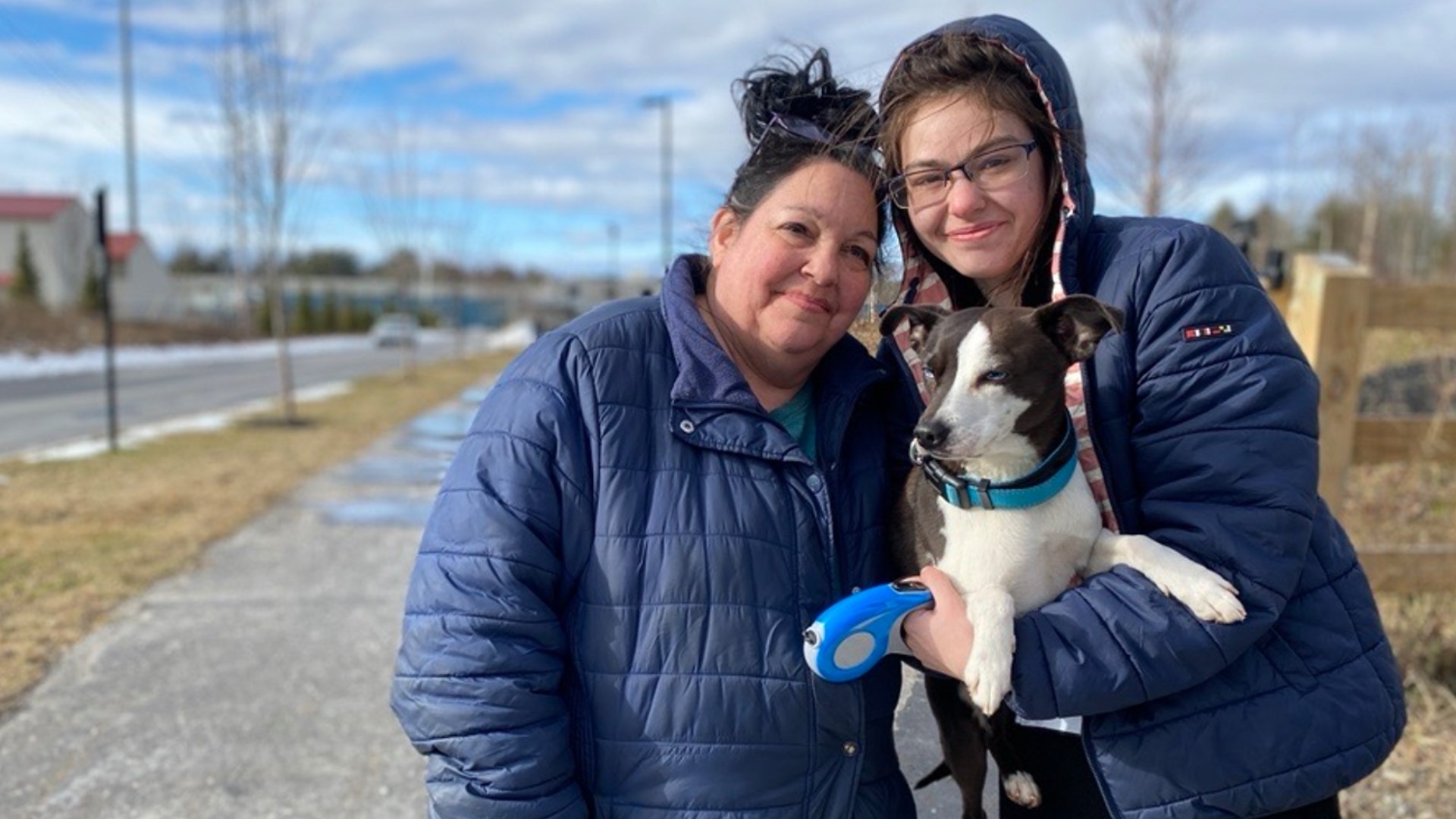PORTLAND, Maine — Erica Mathies spent the entirety of 2023 never wanting to go to a shelter. She heard bad things about the Homeless Services Center (HSC), Portland's homeless shelter that opened early that year.
She decided to live in tents with her boyfriend, surviving the summer heat and storms of December. She said the cold drove her to reconsider her life, along with the consistent pressure from the city in the form of encampment sweeps.
"I thought it was kind of like a jail, to be honest. I didn't think I was able to bring him [her dog] and I thought I wasn't going to be able to see my boyfriend at all," Mathies said.
Some of the things preventing her originally from going to the shelter are the curfew time and the restrictions for those dealing with drug addiction, along with the storage of personal belongings.
Mathies decided though, after the sweeps, that she had enough. She spoke with people from the city and found out the curfew was extended, and she could store more of her belongings.
She also found out that if her dog, Jax, is a service animal, then he can live with her at the shelter.
"I had a friend named Donny, who was in there before we came and told us a little bit about it... he told us it wasn't what we thought it was," Mathies said.
Mathies said after seeing her friend tell her the conditions at the HSC improved, she was sold.
"It's better than I thought it would be... you get to take a shower, do laundry, and stay warm," Mathies said. "I should have came here sooner than I did."
Mathies found the shelter so useful, that she convinced six of her unhoused friends to join her at the shelter.
There still are some drawbacks preventing people from using the shelter.
Drug addiction is still strict and is a barrier for some who are deeply struggling with ongoing substance abuse. Mathies said she is working with staff at the HSC to get on medication-assisted treatment for her heroin addiction. She added she is always sober when she is at the shelter and has used outside the facility when she felt the need to.
According to Peggy Lynch, who works at Preble Street, another barrier is still the distance the shelter is from downtown Portland, and the curfew, which was extended to 11 p.m.
Lynch said it prevents people who have to work in the evenings or early mornings from using the shelter.
"There are still some struggles, but it is improving and people are getting the word out among themselves peer-to-peer," Lynch said.
That word-of-mouth advertisement for the city service is spreading, and makes people from the city that work on the ground happy, like Jason Chan, director of operations for the HSC.
"We are always looking for ways to improve," Chan said. "There is some hesitation... but once people come in and take a tour before they move in, I don't hear any negative feedback from the guests here."
Chan has worked with the city's response to homelessness for some time, remembering the Oxford Street Shelter and the conditions reported in years past.
"It was better than nothing and there wasn't any other shelter... but the trade-off was it was a lot rougher, it was not comfortable... but now you have a comfy place to be, a positive place to work on housing," Chan said.
He said the HSC, even with the addition of 50 overflow beds, is much more spacious and gives people some agency with wall dividers, and power outlets for personal devices.
Now a new challenge is here. As more people use the HSC, the bed space is reaching capacity. Chan said over the last few days the spaces available range from zero to 10.
He said the goal is to move people quickly out of the HSC with hookups for an apartment through programs such as a housing voucher.
Lynch at Preble Street said with the direction Maine's housing crisis has gone, they will need to think about new shelter space soon.
"More shelter space, there is that need with the trend we are seeing... we need a place for people to go," Lynch said.
Alongside bringing Portland's unsheltered people into a safe environment, there are small wins.
Erica's mom, Victoria Dipiteriantino, said this was something she'd hoped for a long time.
"I feel a lot better knowing she is safe in a lot of ways," Dipiteriantino said. "I feel like this is the first step into something coming in the future... she's young and she definitely sees structure here so going to a treatment center could go through her mind."
Dipiteriantino, as a parent who has seen her daughter live with a drug addiction, knows she must be patient.
"You can't make someone do something they don't want to do," She said. "I don't support her habit but I support her as my daughter and I will be there no matter what for her."

